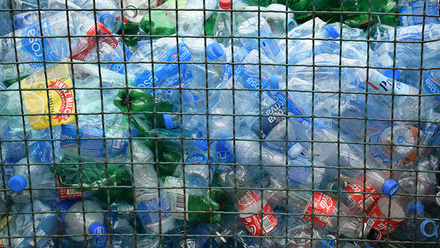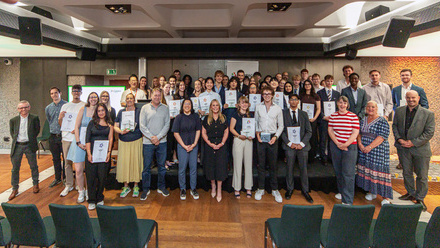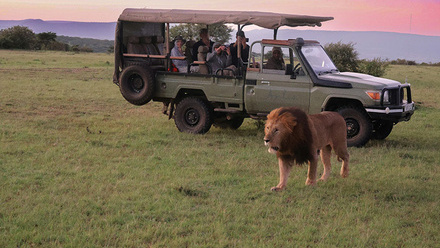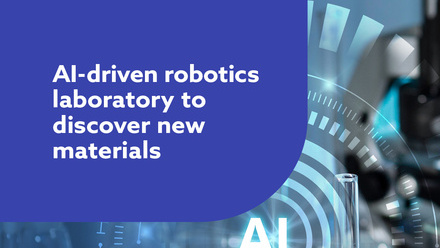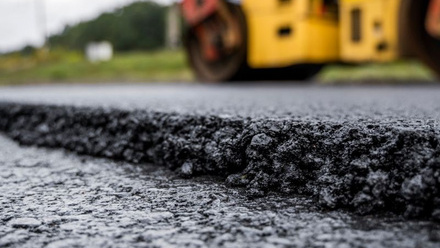Taking off - careers in materials failure and product compliance
We hear from IOM3 Student & Early Career Committee (SECC) members about their careers so far in materials failure and product compliance.
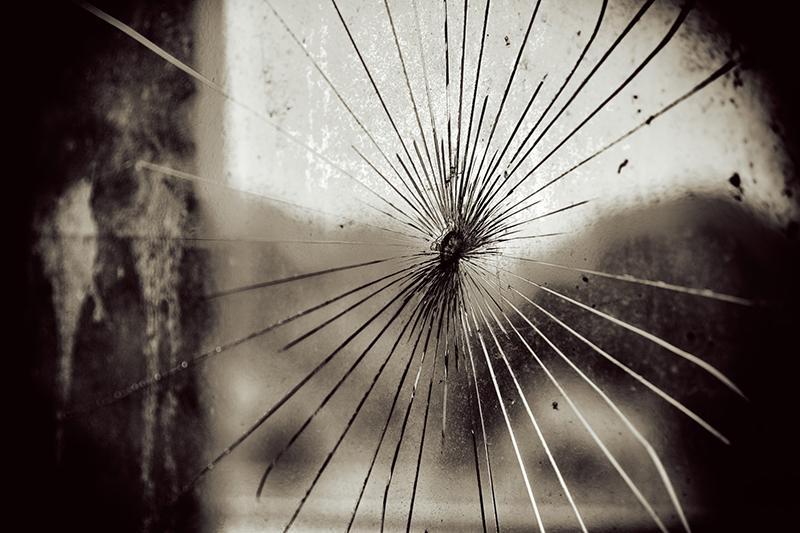
Maitheya Riva ProfGradIMMM, Product Regulatory Consultant at RINA
How would you describe what you do to your friends?
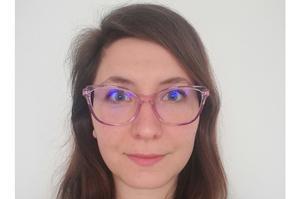
I currently work as a Product Regulatory Consultant for RINA, which is a technical consultancy company. It is quite a niche activity and my friends are usually not aware of what it involves. If I were to describe in a few words, I would say that I help make sure that the products people buy are as safe as possible, from a materials and reliability point of view.
What are the key responsibilities in your role?
Mostly keeping track of developments within regulations and helping our clients remain on the correct side of any changes.
We also help advise clients about how they can future-proof their products to ensure they remain compliant in the long-term. We also contribute to consultations on future developments in regulation, and carry out extensive research to help make sure future technologies are safe to users and the environment.
How did you get the job?
When I graduated in Materials Engineering from my home university in Italy, I moved to the UK and started working for RINA as a Forensic Engineer carrying out failure investigations. I really liked the job and the challenges that it was presenting but I was looking to transition to a less laboratory-based role. I also had a desire to move closer to my family and I was ready to start a new stage in my career. As a forensic analyst I was fully based on site and in the lab and that was proving to be incongruent with my desire to move location. During my time in the lab, I collaborated with the team that dealt with regulatory compliance on a few projects where I provided support for compliance testing in our laboratories. I found this work interesting, and when a position in the team opened up, I took the opportunity to transition to my current team.
Describe a typical day?
I mainly work remotely, and I am lucky to have a lot of freedom in my day-to-day work. You won’t often find me without a tea in one hand and a piece of cake at my desk. As the entire team works mostly from home, we are always connected to each other exchanging opinions and ideas and, despite the distance, we collaborate closely and don’t feel isolated. However, despite the relaxed environment of the home office, days can be pretty hectic between meetings, report writing and deadlines – time flies without you even noticing.
What are the most challenging aspects?
As I have mentioned before, a very important aspect is to keep informed and up to date. Regulations and the associated requirements are constantly evolving, and it is important to follow closely and keep up to speed with the changes. As a company we provide support to a number of different industry sectors, and it is quite time consuming on a daily basis to make sure all the relevant updates are considered.
What is the best part of your job?
I believe that the best part of my job is to be able to make the difference in making our home more sustainable and make sure that people are as safe as possible. It is quite satisfying to know you are actively working towards a better future.
What is the biggest misconception about the sector you work in?
People tend to believe that it is a very tedious job and field in general, but that couldn’t be further from the truth. There are always different topics to research and clients from many different industries, so the activities and topics are varied, and it requires a lot of research and lateral thinking. Projects usually have a very fast turnaround and regulations are constantly developing, making it a dynamic field. If for an external observer it seems like I’m just sitting quietly on my computer, I can assure you that a lot of buzzing is actually happening!
How was your interest in STEM first nurtured at school?
I am convinced that my first interest for scientific subjects came from my Maths and Science teacher in elementary school. She would organise Maths competitions for us and, unfortunately, I must admit I was the only female student interested in participating, but she was always very supportive and nurtured my passion.
I was always very curious about how things worked and wanted to learn about the mechanisms, always asking questions and testing the infinite patience of my parents and teachers. I always knew I wanted to study science for this hunger for the why of everything, but I stuck with it from the beginning out of stubbornness. Very few females were pursuing this path and I wanted to prove a point – that I belonged just as much, regardless of the statistics.
What do you think your sector could do to attract more diverse talent?
Although this field is generally niche, it is always dynamic and evolving, and I believe that seeing the increasing diversity can create a positive role model to encourage young students in pursuing a similar career. Myself and my colleagues have different technical backgrounds, and it is interesting how diverse backgrounds can bring valuable different perspectives, so I am quite excited to see how the field will develop with increasing inclusivity and the positive changes that this will lead to.
What has been the most memorable moment in your working life so far?
I would say that the most memorable and proud moment was being commended by a client for my work ethic. They were just a few words in an email but it made me very proud of my work. But focusing on one moment is difficult, there have been a lot of challenging and interesting projects, and I have worked with incredibly talented people. In particular I had an incomparable mentor that always found a way to make work interesting and fun.
And finally – how do you see your sector evolving in years to come?
I believe that there is a lot of excitement and a lot of prospects for growth in the future, as people are more concerned about knowing what goes into the products they consume and the impact on the environment. All those questions and concerns are a strong push for regulators and companies to respond to this challenge with increasing speed. It is quite exciting to see and to be part of the change as it happens, and to witness first-hand how the implementation of an increasingly sustainable approach is being developed.
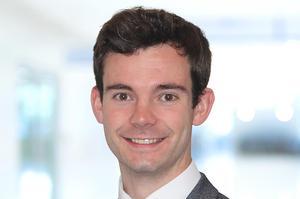
Dr Alastair Houston MIMMM, Consultant Materials Scientist, Minton, Treharne & Davies Ltd.
How would you describe what you do to your friends?
I work as a Consultant Materials Scientist for Minton, Treharne and Davies Ltd (MTD) based in Cardiff, UK. MTD provides independent scientific consultancy, analysis, surveying and expert witnessing services to a worldwide client base. Our clients range from engineering firms, large and small, to legal clients seeking technical advice on anything from fuel quality disputes to metallurgical failures.
My specific role is varied, including forensic material investigations on failed components, quality issues with contaminated or damaged cargoes, and R&D work for companies who require bespoke materials testing. In the case of material investigations, this is often through instruction by legal clients who are after technical advice regarding a claim.
What are your key responsibilities?
My key responsibilities are to interact with clients and, if necessary, travel (potentially around the world) at short notice to investigate incidents. I will then plan and instigate the necessary testing and inspections to investigate the root cause of the incident. In my role I am responsible for organising inspections, which may require contacting representatives from other parties. Technical staff in our independent laboratories will be on hand to assist with testing, however, as the primary investigator, I take an active role to steer the testing, since the exact route of testing may be adapted as new discoveries are made.
Finally, I am responsible for writing up the results of the testing into an expert report. Depending on the case, this might be the end of our involvement. However, some investigations and the disputes thereon can take a long time, and I will continue to provide support to clients on technical matters until the matter is resolved.
How did you get the job?
I have worked at MTD since 2019 and this was my first job after completing a PhD. Prior to going to university, I was unsure of which field I wanted to specialise in, and so I was delighted to study Natural Sciences at Cambridge where I was able to continue studying a wide range of scientific disciplines. In fact, I broadened my studies from A Level, adding Materials Science to accompany Physics, Chemistry and Maths.
This proved to be an excellent opportunity as I found Materials Science to be my favourite subject. As I specialised further, my interest in Materials Science developed until, by the end of my undergraduate degree, I was keen to continue my studies by embarking on a PhD. My PhD concerned the addition of fine ceramic fibres to diesel particulate filters with the aims of increasing filtration efficiency and resistance to thermal shock. As well as developing technical knowledge of ceramics and composites, the PhD provided an excellent opportunity to develop laboratory skills, technical writing and presenting.
I knew coming out of university that I was interested in a job performing materials science investigations. I saw the job at MTD advertised in the job section of an issue of Materials World, and a few months later I was part of the team!
Describe a typical day?
There is no such thing as a typical day in MTD! The work tends to be divided between either practical activity, e.g. testing, inspecting, witnessing or attending on-site, to desk-based activities, e.g. report writing and contacting clients.
During practical work, we are supported by in-house metallurgical, chemical and non-destructive facilities. Typically, we will receive samples at our laboratories, and our investigations will be conducted either by unilateral testing or as a joint analysis, whereby other experts appointed by interested or even opposing parties will attend to participate in the inspection.
Testing will start by identifying and recording the samples, followed by detailed visual examination. Subsequently, we may wish to examine components closely using light microscopy or perform non-destructive testing (NDT), supported by in-house NDT expertise and facilities. Further analysis may be destructive, which might require performing impact tests, tensile measurements, or taking cross-sections of components.
In the case of polymers, we have a range of identification options available e.g. differential scanning calorimetry (DSC), Fourier transform infrared spectroscopy (FTIR).
Following the completion of a test programme, we need to write a report which requires us to interpret the testing and communicate the meaning of the results in a way that is clear to the layman.
What are the most challenging aspects?
Some jobs are large and complex, and we can be supplied with thousands of pages of information. While this can feel overwhelming at first, being able to distil the information and find the important points can be very rewarding.
What is the best part of your job?
My favourite part of the job is the variety of cases that we work on, and the range of techniques that are available to assist in an investigation. The range of jobs is also made more interesting by the range of expertise present in the materials team at MTD.
Very rarely is a job conducted in isolation, but we often work together sharing our knowledge and challenging and refining our understanding of the issue under investigation.
What is the biggest misconception about the sector you work in?
The field of material failure investigations is unknown to many people, and so perhaps that means that there are few misconceptions. Perhaps one of the largest misconceptions about our role is that we are involved in loss-adjusting, and the financial aspects of a case. Our role is to provide technical advice, commonly to lawyers, but we do not become heavily involved in quantum discussions.
How was your interest in STEM first nurtured?
I enjoyed science subjects in school, and I was supported by encouraging and enthusiastic teachers who recognised this and were happy to push me further than the curriculum required.
My school encouraged extra-curricular science activities such as entering Maths, Physics and Chemistry Olympiads.
I was encouraged to attend relevant courses, such as a mining and minerals course run by the Smallpeice Trust, and I was supported on a summer placement at Liverpool John Moores University, UK, conducting research into laser welding.
I continued this beyond the original placement length, culminating in presenting my findings at the national science and engineering competition as part of the Big Bang fair.
What do you think your sector could do to attract more diverse talent?
The sector of materials failure investigations is relatively unknown, and so the best way to attract more diverse talent is to increase general awareness of the role, and so increase the exposure to a diverse range of people. I was inspired to pursue my career based on a presentation that I really enjoyed, and so I think that the importance of communicating the specifics of the role, including focusing on particular under-represented demographics, cannot be overstated.
What has been the most memorable moment in your working life so far?
Perhaps one of the most memorable moments so far was the anticipation of the location of my first onsite job. There were a few opportunities for my first site job that almost materialised in exotic international destinations, but in the end my first job was a cold, wet January day in Immingham Docks, inspecting piles of allegedly off-specification iron ore. Not quite the glamorous destination I was hoping for, but at least the only way from there was up!
And finally – how do you see your sector evolving in years to come?
I think that the field of materials failure investigations will evolve to include any new technologies. With the recent limitations on travel imposed by COVID-19, we have needed to find new ways to select samples to recover for testing. We are now returning to old methods of travelling to the site of an incident – there is no substitute for being onsite and viewing the incident first-hand. However, meetings are commonly over video calls and even hearings are being held remotely.
Also see this link fo an article from Alastair Houston on understanding failures in flexible pipelines.
The IOM3 Student & Early Career Committee (SECC) represents the views of student, younger and early-career members to the Institute's Executive Board and Advisory Council.



